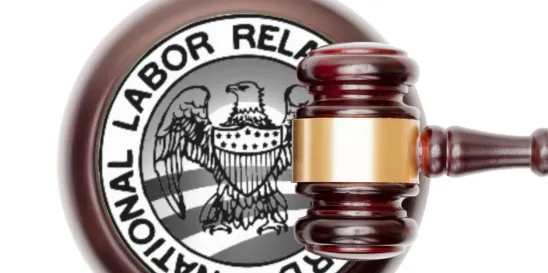The NRLB has hit another roadblock in its implementation of a new final joint employer rule (the “Final Rule”) as a Texas federal judge delayed its implementation until March 11. The Final Rule, which was supposed to take effect on February 26, would have made organizations liable for violations of the NLRA if they had direct or indirect control over the terms and conditions of employment of another firm’s employees. This change increases the potential of liability from franchising or contracting with third parties. To see more information on the implications of the Final Rule, see our previous articles here and here.
The stay of the implementation is a result of a challenge from a coalition of trade associations led by the U.S. Chamber of Commerce. The Plaintiffs attack the Final Rule on three fronts. First, they argue that the rule is inconsistent with the NLRA’s definition of employer and common law interpreting that term which traditionally required direct control to be considered an employer. Second, they argue that the Final Rule violates the NLRA by defining the employer to include those who cannot bargain. The Plaintiffs contend that the Final Rule would require entities that have limited control over only one essential term and condition of employment to engage in the bargaining process. For example, under the Final Rule, entities that do not control terms like wages and hours would have to engage in “piece-meal bargaining” over the terms they do control. This could ultimately create labor instability and additional pitfalls throughout bargaining. Third, the Plaintiffs argue that the Final Rule violates the Administrative Procedure Act because it is arbitrary and capricious. The Plaintiffs specifically point to disruptive impacts from practical effects of the Final Rule and uncertainty for putative joint employers because the standard is nebulous and uncertain. The judge has not yet ruled substantively on these challenges, but stayed the effective date of the Final Rule until March 11, 2024. Additional action on the Final Rule is likely in the near future.
This is not the first delay of the implementation of the Final Rule. The rule was initially scheduled to become effective on December 26, 2023, but the NLRB extended the effective date as a result of the legal challenges. It also is not the only legal challenge to the Final Rule. Another case regarding the rule has been brought in the D.C. Circuit by the SEIU. In contrast to the Chamber, the SEIU argues that the new Final Rule does not go far enough and the definition essential job terms should be expanded even further.
The Final Rule remains in legal limbo and, considering the multiple challenges, it may remain so for some time. Employers should prepare for the Final Rule to be implemented on March 11, but continue to monitor and react to any additional delays. Employers should review their current and pending contracts to determine any potential liability or obligations created by the new rule.





 />i
/>i

